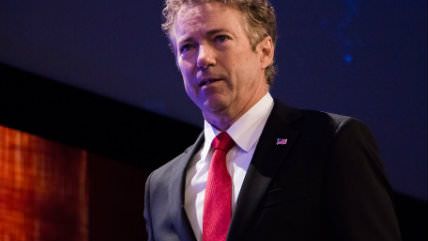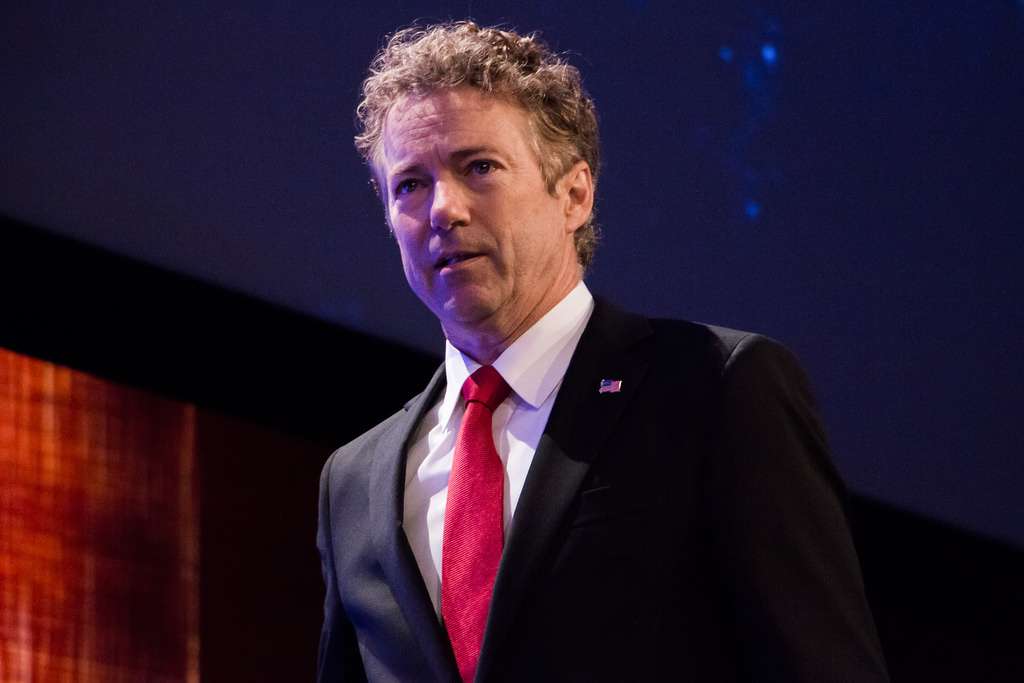Hard Times Ahead for Advocates of Peace and Free Markets
For liberty lovers it will be a long road to November 8, 2016.


These are hard times for us advocates of peace and free markets. As the 2016 presidential campaign heats up, where can we turn—assuming we must turn somewhere? Neither Republicans nor Democrats have much to offer voters who both favor free markets and agree with James Madison (not someone I'm usually fond of quoting) that "of all the enemies to public liberty war is, perhaps, the most to be dreaded, because it comprises and develops the germ of every other."
One need only watch the Republican "debates" (they're more like dog shows) to see this. Who among the 14 contenders represents the strain, however faded it is, in American politics that combines Adam Smith, the 18th-century Scottish champion of the "system of natural liberty," and William Graham Sumner, the turn-of-the-20th-century classical-liberal sociologist who opposed America's conversion into a global imperial power with the Spanish-American War?
Both men forged some of the most important pro-liberty principles of the American tradition. Smith, in The Wealth of Nations, opposed government privileges for business, such as monopolistic trade restrictions, and imperialist foreign policy, while Sumner condemned the progressives' embrace of old-world militarism. (See his devastating and still-relevant critique, "The Conquest of the United States by Spain.") Both understood that political power was the source of most social ills, and their prescription was the same: roll back that power as much as possible in order to unleash individual energy and, in the words of another thinker in this tradition (Albert Jay Nock), "social power." (Historically, classical liberals understood support for global free markets—essentially a world without borders—and opposition to war as two vital parts of a single integrated program.)
Last month's three-hour CNN-staged Republican spectacle conspicuously lacked this perspective in favor of peace and free markets. We heard essentially nothing about freedom and free markets but much about military power, foreign intervention, and war. When Donald Trump disparaged free international trade, promising to negotiate tough beggar-our-neighbor "deals," no one refuted his protectionism and touted the justice and tangible benefits of free-flowing goods and capital. And when he disparaged immigration, again no one refuted his nativism and touted the justice and tangible benefits of free people pursuing better lives no matter where that quest takes them. Nor did anyone note that under a real free-enterprise system, employers wouldn't be forced to run job candidates' names through a government database.
A low point in the debate came when Jeb Bush bragged that as governor of Florida he stopped Trump from building a casino in the state. No one on stage criticized Bush for using government power to thwart free enterprise, just as no one complained that Trump used the government's eminent-domain power to steal people's homes.
Similarly, Ben Carson defended raising the minimum wage. If you were waiting for someone on stage to mention that a government-mandated minimum wage (along with a host of other alleged benevolent measures) violates market principles and prices unskilled workers out of jobs, you heard only crickets instead.
On foreign policy, not one Republican stood up for principled peaceful nonintervention, although Sen. Rand Paul cautioned that intervention can backfire. (That's a mighty pale version of what the "Old Right" writers and politicians offered in their case against war and empire in the 1930s, 1940s, and 1950s.) Several Republicans called for confrontation with Russia (Trump has been a notable exception), branded China an "enemy," and portrayed President Obama, who's dropping bombs and otherwise intensifying conflict all over the Middle East, Africa, and Central Asia, as a peacenik. (That's the joke of the young century.) Republicans haven't yet learned (though Rand Paul's father, Ron, tried to teach them) that U.S. intervention incubated and spread the Islamic jihadism they are so eager to send others to fight and even to face down Russia over.
They all seem especially eager for a war of aggression against Iran even though it has not been pursuing a nuclear bomb (American and Israeli intelligence agree) and has accepted unprecedented anytime inspections of—and major reductions in—its civilian nuclear industry. In return, economic sanctions will be lifted and assets unfrozen, though Republicans falsely imply that Americans will foot the bill. Republicans, including Rand Paul, tell the most outrageous lies about Iran and the nuclear deal, a strategy that can only serve to prepare Americans for a catastrophic war. Perhaps most outrageous is Trump's claim, unchallenged in the establishment media, that the agreement would obligate the U.S. government to defend Iran against an Israeli attack—not that the U.S. government should side with Israel. (Republicans ignore that Iran's animosity to the United States is rooted in the CIA's 1953 overthrow of a democratic Iranian government, the restoration to power of a brutal monarch, and the continuing U.S. proxy, covert, cyber, and economic warfare against the Iranians.)
Rand Paul might seem to be an exception in this, but is he really? He speaks generally about limiting government power, and to his credit he has protested Obama's drone warfare against American citizens and mass surveillance. But in many ways Paul muddies the message and gives aid and comfort to the interventionists. While he cautions against foreign entanglements, he has joined the worst hawks in demonizing Iran and trashing the nuclear agreement. And while he speaks some wisdom about the oppressive the drug war, especially its toll on poor minorities, he would force people into so-called rehabilitation. In the debates held so far, Paul has passed up myriad opportunities to promote free immigration and free enterprise.
I wish it were different on the Democrats' side, but it is not. Where, for instance, is Bernie Sanders's critique of Hillary Clinton's support for imperial intervention in the Middle East and elsewhere?
For peace and freedom lovers, it'll be a long road to November 8, 2016.
This piece was originall written under the auspices of the Independent Institute, where Richman is a Research Fellow.


Show Comments (74)